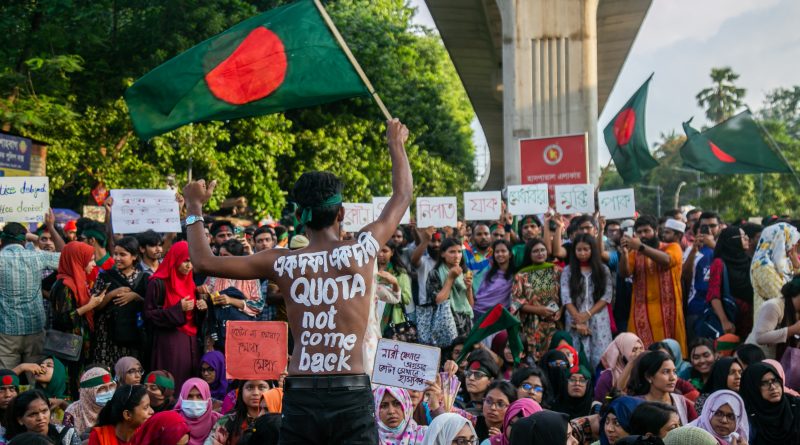Quota Reform Movement in Bangladesh
Quota Reform Movement in Bangladesh
In recent weeks, Bangladesh has witnessed the outbreak of massive protests and demonstrations, unlike those witnessed in recent years, on the contentious issue of the country’s quota system in government jobs. The quota system, designed to ensure equitable representation for disadvantaged groups, has become a flashpoint for debates on fairness, meritocracy, and social justice in Bangladesh. Among them, the freedom fighter quota that is the reservation of government jobs for freedom fighters (muktijoddha), a significant aspect of the country’s public service recruitment policies, established to honour the contributions of those who fought for Bangladesh’s independence in 1971, has become a focal point for debates on equitable representation and opportunities, fair access to government jobs, and the evolving nature of national policies. What started as a student movement has rapidly evolved into a nationwide call for reform, drawing widespread attention and prompting significant government response. However, these protests were not confined to the student community but soon intertwined with broader political dynamics of the country. It is anticipated that opposition political parties and groups begin to see an opportunity to leverage the student discontent for their own political agendas, bringing additional resources and visibility to the student movement. Therefore, an attempt has been made in this article to highlight the historical origin of the quota movement in Bangladesh and the reasons and consequences of this upheaval in the country. According to reports, nearly 200 people have died in clashes till now with thousands injured. This represents a complex interplay between grassroots activism, political strategy, and the deep discontent against the government within the society. To conclude, Bangladesh is facing a unique situation at present. The government announced a nationwide day of mourning on 30 July to honour those who lost their lives in the recent violence. The accumulation of all these factors created mass anger among the youth and the nation’s general population. So, of course, the protest movement might not remain the same as when it started, with the agenda of reforming the quota system alone along with demolishing the autocratic government. Finally the will of the present generation establish whereas the Ex-Prime Minister was bound to escape after resigning from the post. To conclude, Bangladesh is facing a unique situation at present. The government announced a nationwide day of mourning on 30 July to honour those who lost their lives in the recent violence.

